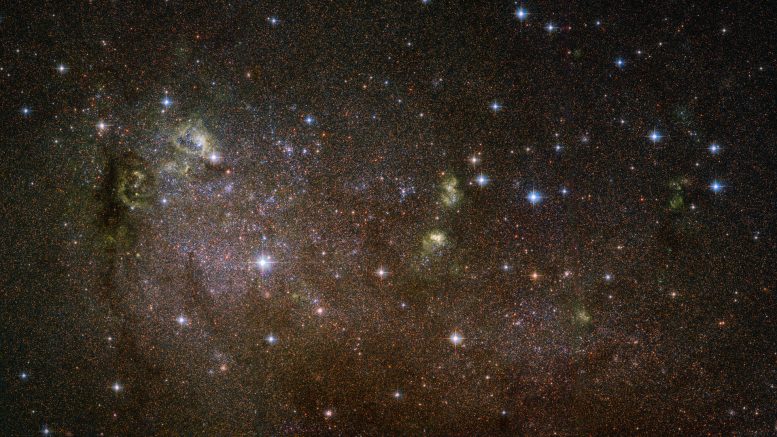
This image shows an irregular galaxy named IC 10. It is the closest-known starburst galaxy to us, meaning that it is undergoing a furious bout of star formation fueled by ample supplies of cool hydrogen gas. Credit: NASA, ESA and F. Bauer
This image shows an irregular galaxy named IC 10, a member of the Local Group — a collection grouping of over 50 galaxies within our cosmic neighborhood that includes the Milky Way.
IC 10 is a remarkable object. It is the closest-known starburst galaxy to us, meaning that it is undergoing a furious bout of star formation fueled by ample supplies of cool hydrogen gas. This gas condenses into vast molecular clouds, which then form into dense knots where pressures and temperatures reach a point sufficient to ignite nuclear fusion, thus giving rise to new generations of stars.
As an irregular galaxy, IC 10 lacks the majestic shape of spiral galaxies such as the Milky Way, or the rounded, ethereal appearance of elliptical galaxies. It is a faint object, despite its relative proximity to us — just 2.2 million light-years. In fact, IC 10 only became known to humankind in 1887, when American astronomer Lewis Swift spotted it during an observing campaign. The small galaxy remains difficult to study even today because it is located along a line of sight which is chock-full of cosmic dust and stars.
A version of this image was entered into the Hubble’s Hidden Treasures image processing competition by contestant Nikolaus Sulzenauer, and went on to win the tenth prize.

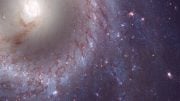
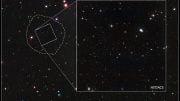
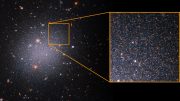
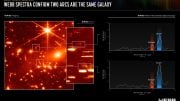
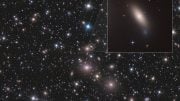
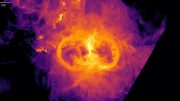
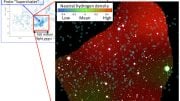
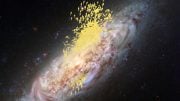
Irregular galaxy IC 10 evokes a question I have long had. How can we be so sure that some of the virtual particles that pop into existence, actually remain and become real matter. The universe is a really big place and things might happen in some distant parts of the universe that do not happen here. It just seems like the big bang theory is not quite adequate to explain all we have discovered about creation.